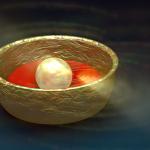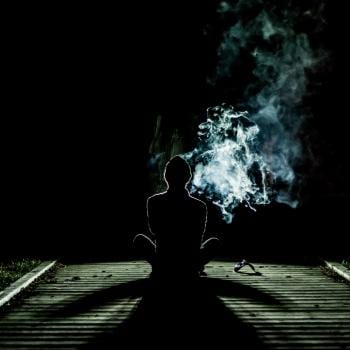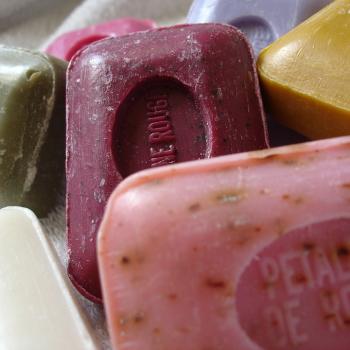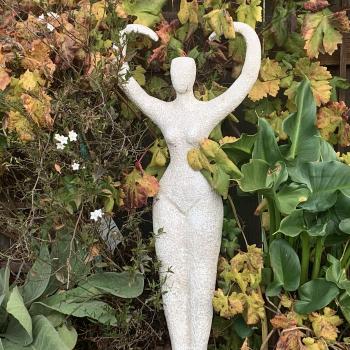I burn incense virtually every day. It’s been a big part of my personal practice for years and it’s spanned practically all traditions I’ve ever encountered. There are incense burners in my home office and at the shop I co-own.
The Very Incomplete History Of Incense
Excavations of Egyptian tombs and temples dating back about 4500 years, unearthed burners with traces of resin still inside of them. Carvings from the same period show the collection of herbs and other materials for the purpose of making incense. There’s no ancient book called “Hey! People from the future, here’s why we burned incense so much” but archaeologists and other exceedingly smart people have posited that burning incense at funeral rites masked the smell of death and decay.
Incense or the remnants and associated paraphernalia have been found in Babylon, modern day Iraq. Apparently, Babylonian Divination and oracular rites featured incense.
Throughout Southeast Asia and Asia religious and medical texts going back several thousand years mention incense and the various purposes it was employed for. The Greeks and Romans had it too at their rituals and festivals. Christian sects had their censers and thuribles. From about the 7th century BCE until late in the 1st century CE, incense was transported along the “Incense Road”, part of the Spice Road. Nowadays you can buy your favourite scented sticks at pretty much any shop you frequent.
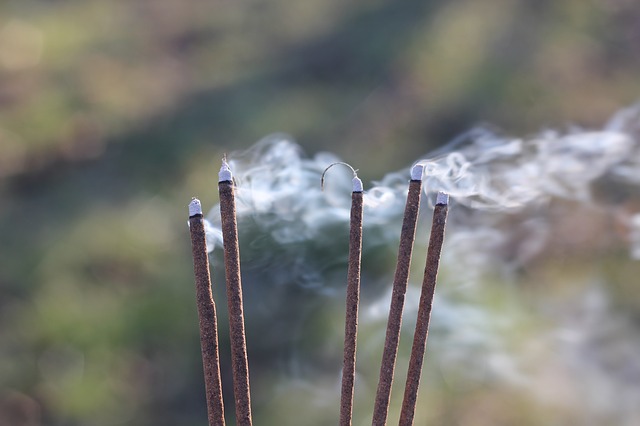
Buddhism And My Practice
I started burning incense when I was a practicing Buddhist. It plays a big part in the daily devotions of Buddhism for both esoteric and really practical reasons. Various sects within Buddhism attach (that’s totally a Buddhist inside joke) varying degrees of importance to burning incense. In the tradition I studied, we used it in four ways.
We lit three sticks of incense honoring the Buddha, the Dharma (teachings) and the Sangha (Community).
Devotions generate good karma and good habits.
It’s a meditation clock. Super practical, right? When the incense was done burning, we stopped meditating.
Particular incenses elicit certain states of mind or remembrances. Lessons are associated with specific aromas. To this day, when I smell Nag Champa, I’m transported right back to the teaching room in the temple and can see my dear Rinpoche’s face and hear his voice dispensing great wisdom.
Most of the reasons for burning incense translate exceptionally well over to my Pagan rites, so I keep them up even now, with a few changes.
Witch Work And Incense
As I sit down to write about magic or research spells incense wafts through the room. I do this because it’s habit forming. I associate the smell with writing about magic. Here’s what I’ve noticed; when I’m out and about and my nose picks up certain scents, I get all inspired. The daily practice of lighting incense plus writing staves off Writer’s Block and promotes the action of writing.
Phoenix and I created distinct, magical incenses intended to aid our work with deities. Each one has herbs and oils and intentions singular to that deity and what they mean to us. We burn them often as part of our devotional practices. While it’s unlikely that deity X really cares about our devotions, we care and that impacts the way we do magic together.
The smoke and the aroma represent the Air. The Air is influenced by the Earth in the form of the flowers and herbs that make up the the incense. Water feeds the herbs and the flowers that make the incense possible. The Earth, The Water and The Air are activated by Fire. Without the Fire, the stick just sits there. The Center or Spirit is embodied in the unlit incense. It’s all potential just waiting for the spark of inspiration. And, of course, all of this is temporary and sensual. Eventually it will burn away and return to whence it came. I’ll enjoy it for just a few moments, just like life itself.
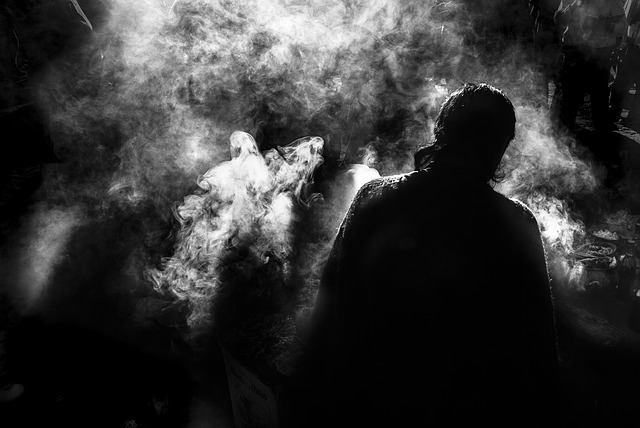
A Few Words About Health And Safety
You know at the end of medical commercials there’s always that list of side effects read really quickly by the spokesperson for the legal firm? This is that part.
Exposure to too much smoke can be bad for your health. Know what you are burning and ventilate the room if you can.
Several studies show health benefits to burning incense. They range from placebo effects to curbing depression to increasing memory capacity.
Be aware that not everyone in your community can be around incense. Scent sensitivity is a real thing.
Lastly, if you share living spaces with other people remember this phrase… “Jeez it smells in there, please light some incense would ya!”…it’s good karma and polite.


